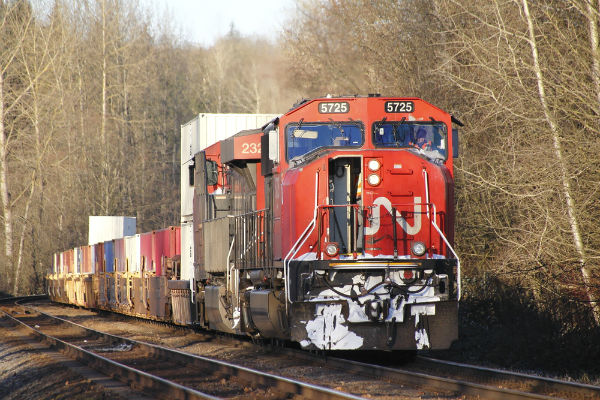Binding arbitration remains option for company

WINNIPEG/MONTREAL (Reuters) — Canadian rail shippers are urging Ottawa to intervene in a looming strike at Canadian National Railway (CN) — the country's largest railroad — fearing that a shut-down would immediately damage their businesses.
The union representing CN's estimated 3,000 Canadian conductors has set a strike deadline of Tuesday at 4 a.m. EDT after the railroad announced new work rules during negotiations to replace an expired contract.
If they decide to strike, it would be the first such action by CN conductors, or the train operators, in a decade.
Freight Management Association of Canada, which represents agriculture, mining, forest products and other sectors, wrote to Labour Minister Patty Hajdu on Sunday asking her to impose binding arbitration to resolve the dispute.
A strike would result in missed sales by exporters and commodity shipments arriving late to port, racking up higher costs, said Bob Ballantyne, president of the freight association, on Monday. Retailers who import goods would also be affected, along with auto manufacturers who rely on just in time parts delivery, he said.
"The impact on many industries can be almost immediate and have quite a devastating effect," Ballantyne said. "If they have to shut down, the impacts of a rail strike are really major for the whole Canadian economy."
Canada exports most of the grain, potash and other commodities that it produces, moving them vast distances to ports via CN or rival Canadian Pacific Railway Shippers who may be affected include grain trader Cargill and coal producer Teck Resources.
Chemistry Industry Association of Canada — whose members include Dow Chemical Co and Akzo Nobel Chemicals — also drafted a letter to Hajdu on Monday asking for binding arbitration. A strike would cause chemical makers to quickly run out of storage, resulting in production shutdowns, said spokeswoman Erika Adams.
A spokesman for Hajdu would not say whether the government is considering legislation to keep workers on the job, saying that it has faith in the collective bargaining process.
Patrick Waldron, a CN spokesman, said that the railway is "cautiously optimistic that a deal will be reached" before the deadline.
He declined to say how the railroad would operate in case of a strike.
Roland Hackl, lead negotiator for the Teamsters Canada Rail Conference, said in a statement that negotiations would resume on Monday afternoon.
The new work rules introduced by the railroad include a two per cent wage increase and removal of a clause that requires CN to consult with the union before making "material changes" such as terminal closures and mandatory relocations, according to Teamsters.




